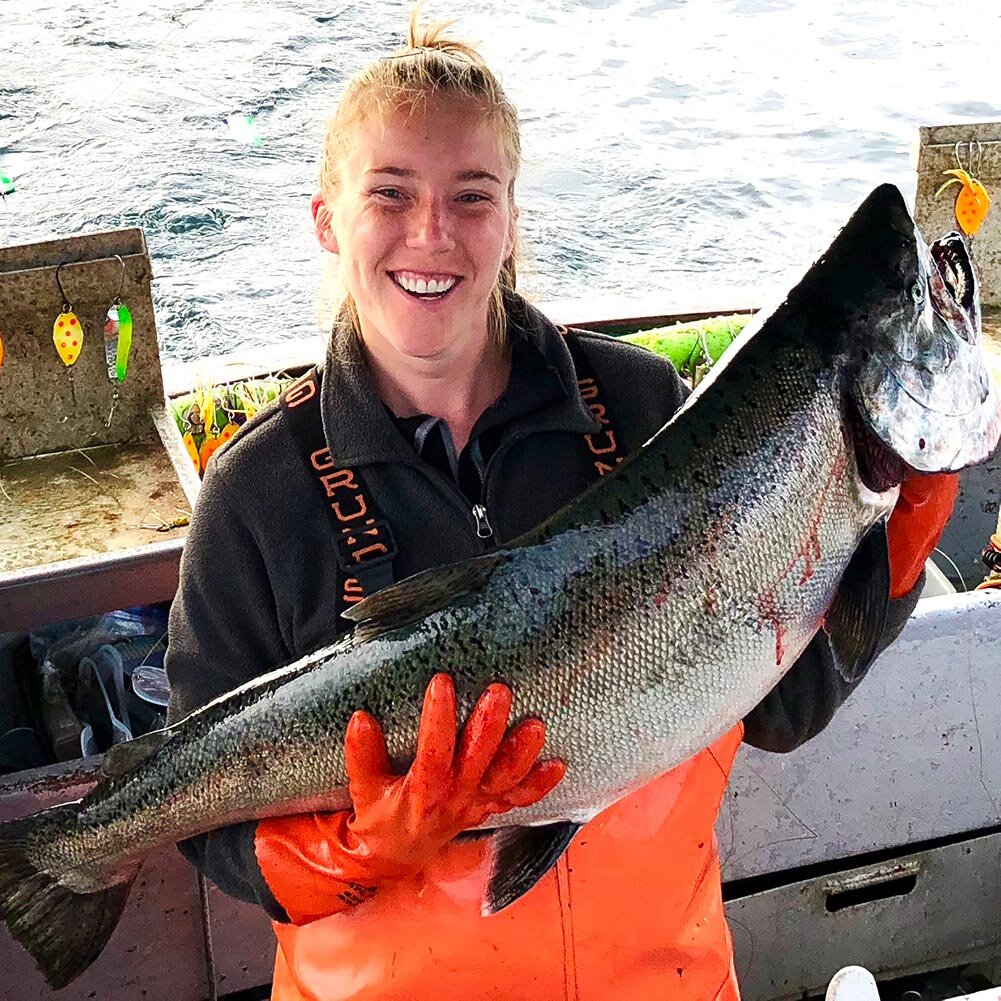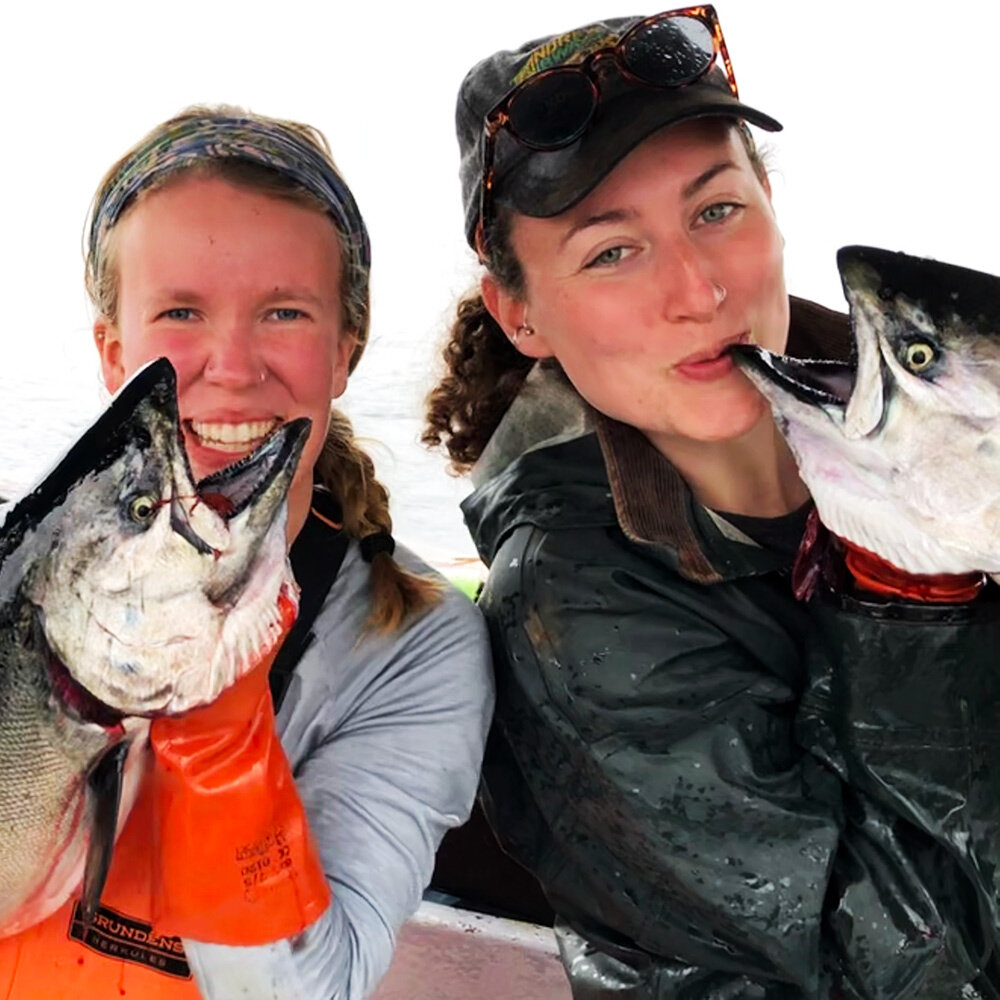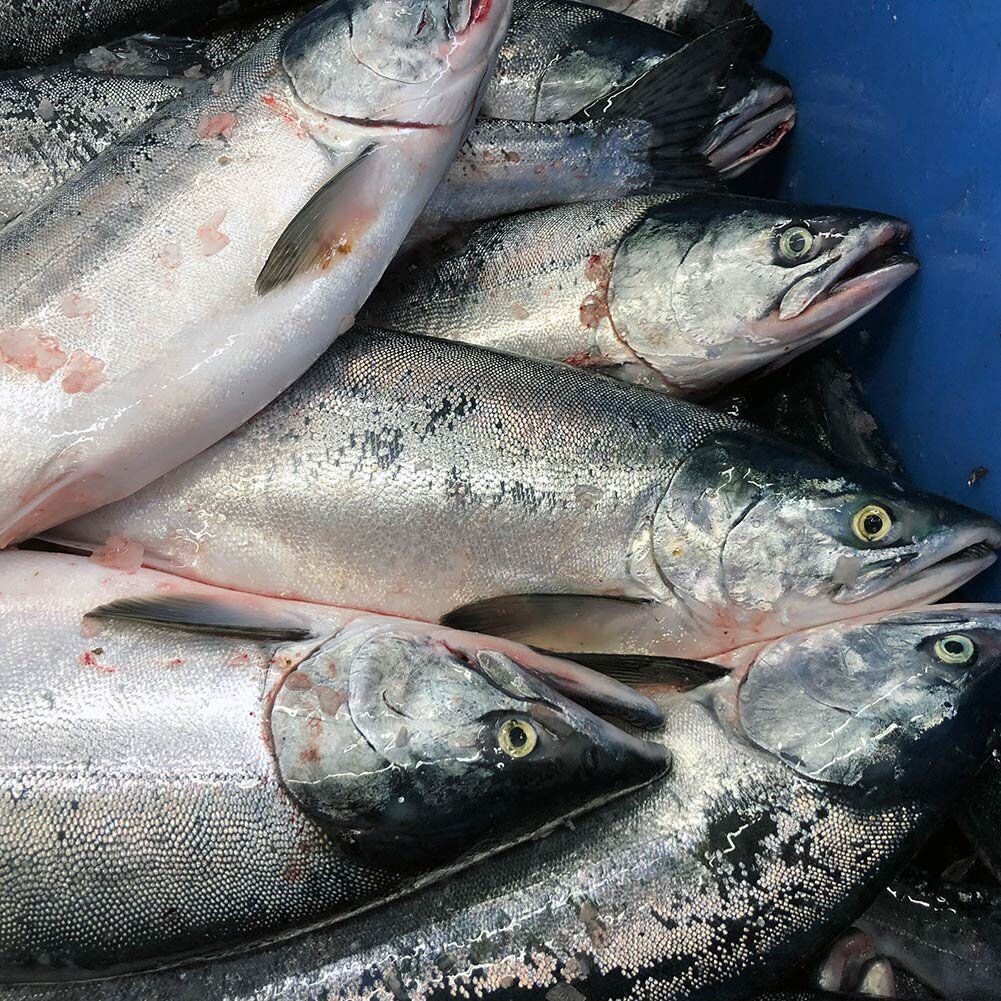Gaining access to the fisheries off Alaska is increasingly difficult for young Alaska rural residents.
Thirty years ago, a young person who wanted to fish commercially needed a boat, some fishing gear, and a sense of adventure to get started in the business. Today, young fishermen face staggering entry level costs, high operating costs, and a level of risk that is equivalent to buying a starter hotel, instead of a starter house as a first step in home ownership. Studies show that the average age of Alaska’s commercial fishermen is now 50, up by nearly 10 years since 1980. Fishery access permits and quota are being lost from rural Alaska communities.
ALFA is committed to helping the next generation of fishermen and ensuring residents of Alaska’s coastal communities have access to our fisheries. Through a number of programs, we are helping the next generation of commercial fishermen launch and support viable commercial fishing businesses.
National Advocacy: Young Fishermen's Development Act
Click here to listen to a radio interview with Linda Behnken, the director of the Alaska Longline Fishermen’s Association, and Marissa Wilson, the director of the Alaska Marine Conservation Council. Both worked over the last few years to advocate for the Young Fishermen’s Development Act, which was signed into law in December. They discuss how the law was created, and how it will benefit young people hoping to enter the fisheries.
Currently, there is not a single federal program in place dedicated to training, educating, and assisting the next generation of commercial fishermen. ALFA has joined forces with the Fishing Communities Coalition, a nationwide fisheries advocacy group to advocate for a national program to support young fishermen. Modeled after similar agricultural programs, the Young Fisherman’s Development Act would help connect and expand on existing regional efforts to support beginning commercial fishermen.
The program will provide funding and support for state, tribal, local, or regionally based networks or partnerships to:
Create training and educational opportunities in sustainable and accountable fishing practices and marine stewardship, business practices, and technical initiatives that address the needs of beginning fishermen.
Create mentorship/apprenticeship opportunities to connect retiring fishermen and vessel owners with new and beginning fishermen.
Foster a conservation ethic that prioritizes sustainable fishing practices and marine stewardship.
Offer financial support and guidance for new fishery entrants.
A national program that provides increased opportunities for the next generation of commercial fishermen will be a groundbreaking step in protecting the stability of coastal fishing communities and America’s seafood supply chain.
ALFA also provides young people opportunities to learn about and participate in the decision-making process. Each year, ALFA brings young people to local, state, and national spheres so that they can testify about issues that are relevant to the commercial fishing fleet and coastal communities. ALFA also encourages members to join the Young Fishermen’s Network, which has local chapters throughout Alaska.
Fishery Conservation Network Mentorship & Leadership Development
ALFA’s Fishery Conservation Network (FCN) engages fishermen in collaborative research to address conservation challenges and improve the viability of small boat fishing. Fishermen and scientists share data and information to accomplish a variety of projects such as our bathymetric mapping project. FCN members map the seafloor, share maps, and work together to more efficiently catch target species while controlling bycatch rates and avoiding sensitive habitat.
Through the FCN, established fishermen have the opportunity to mentor and work with young fishermen and pass on knowledge, tools, sustainable fishing practices, and resource stewardship ethics.
Crew Training
Formalized as part of ALFA’s Young Fishermen Initiative in 2015, the Crew Training program aims to provide those with an interest in commercial fishing an opportunity to gain experience.
It aims to give young people the opportunity to gain an understanding of commercial fishing, the lifestyle it provides, and its importance in supporting coastal communities in a safe and well-guided entry level experience.
ALFA has developed materials, a curriculum, and protocol for experienced skippers who are interested in hiring through the program. Click the link for more information and to apply. http://www.alfafish.org/crewtraining
Alaska Sustainable Fisheries Trust
ALFA has explored alternative funding mechanisms for limited entry and Individual Fishing Quota (IFQ) purchase since IFQs were implemented in 1995.
ALFA helped to found the Alaska Sustainable Fisheries Trust (ASFT) in 2009.
To date, the Local Fish Fund (LFF) has facilitated transfer of over half a million dollars of quota shares and permits to Alaskan residents, with the most recent transfer completed in the first week of June 2017. We are currently finalizing terms with a regional fiscal agent that will guide program expansion as we take LFF to scale. We have $1.2 million in capital pledged by fishermen and $3 million in program related investment capital pending through NatureVest. ASFT has been awarded $180,000 in committed grant funds for the project.
LFF’s progress in scaling up to meet community need has been facilitated through strong regional partnerships and local support. LFF’s first transaction included a partnership with Sealaska’s community development arm Haa Aani; the others involved local fishermen and local investment. LFF has also forged strong partnerships with The Nature Conservancy, NatureVest and, most recently, the Juneau Economic Development Commission. LFF's innovative approach lowers entry level costs and shields the young fishermen’s financial risk while still providing a clear path to ownership of fishery access.
ASFT is currently working closely with our partners to fully capitalize LFF and take this innovative program to scale.
Learn more about ASFT by visiting the Trust's website.
Resources
Alaska Sea Grant FishBiz Website - Financial and Business Tools for Alaska Commercial Seafood Harvesters
Fish Safe: Sustaining Fishermen in Sustainable Fisheries
Young fishermen in British Columbia take pride in fishing sustainably and safely, while also delivering some of the highest quality wild-caught seafood.
“By profiling young fishermen that are both invested in their respective fishing operations as well as emergency preparedness, the video provides an aspirational element for fishermen, both current and future, that fishing can be performed both sustainably and safely on our coast.”






